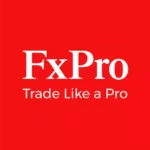How much is the general commission of foreign exchange agents?
Foreign exchange agents: behind the secret commission to make money
As the world's largest financial market, the foreign exchange market has a daily trading volume of several trillion US dollars, attracting the participation of numerous investors and institutions. In this huge market, foreign exchange agents play an important intermediary role, not only providing investors with a trading platform, but also making profits through commissions. What is the general commission of foreign exchange agents? How do foreign exchange agents earn profits through commissions? Let's discuss together.
What is a foreign exchange agent?
Forex agents, also known as forex brokers, are the bridge between forex traders and the market. By providing a foreign exchange trading platform, foreign exchange agents enable investors to exchange and trade currencies in the global market. Usually, forex agents charge their clients a certain commission or spread as a transaction fee. These fees are one of the main sources of income for foreign exchange agents.
For many traders, choosing a suitable forex agent is crucial. A good agent can not only provide a stable trading platform, but also help traders optimize transaction costs, provide professional market analysis, and even provide certain money management services.
Foreign exchange agent commission: composition of commission
The source of income for a forex agent usually consists of two parts: spreads and commissions. The spread is the difference between the bid price and the ask price and is one of the transaction costs. Commissions, on the other hand, are charged based on the volume of transactions or the number of transactions.
1. Point difference
Stakes are the most common transaction fees in the foreign exchange market, and almost all foreign exchange agents use the spread fee model. In the foreign exchange market, each currency pair has a bid price and a ask price, and the spread refers to the difference between the two prices. Agents make a profit by setting a certain spread, and usually agents add a fee to the market's standard spread as a source of their income.
2. Commission
Unlike spreads, commissions are charged based on the volume or number of trades. For some forex agents, they do not charge spreads, but instead charge a commission directly to the trader, which is usually a fixed fee per trade. The size of the commission depends on what the agent charges and how much the trader trades.
3. The relationship between commission and spread.
In some cases, foreign exchange agents will adopt the "spread commission" fee model. This means that the agent will charge both a spread fee and an additional commission based on the volume or number of trades. This fee model may be more applicable to high-frequency traders, as they may increase the frequency of trading by reducing spreads, thereby reducing overall trading costs.
The size of the forex agent commission: how to calculate?
The commissions of foreign exchange agents are usually related to a variety of factors, including the agent's fees, the volume of transactions, and the variety of transactions. In general, the size of the commission can be determined by several factors:
1. Trading volume
Trading volume is an important factor in determining the size of commissions. Many forex agents set commissions based on the trading volume of their clients. For example, if the customer's trading volume is large, the commission will be lower; conversely, if the customer's trading volume is small, the commission may be higher. This practice helps to encourage customers to make more transactions and increase the agent's income.
2. Trading varieties
Different foreign exchange varieties, commission standards will be different. In general, more liquid currency pairs, such as EUR/USD (EUR/USD) and GBP/USD (GBP/USD), may have relatively low commissions, while less liquid currency pairs may have higher commissions. Some foreign exchange agents also adjust their commissions based on the volatility of market conditions. For example, when the market is volatile, commissions may be appropriately increased to compensate for the market risk faced by agents.
3. Type of Account
Forex agents usually set different commission rates for different types of accounts. For example, commissions may vary for standard accounts, VIP accounts, or ECN accounts. VIP accounts usually offer lower commissions because these accounts have larger trading volumes and agents can also make more profit from them. For novice traders, a standard account with a higher commission may be more suitable for their needs.
4. Leverage effect
Leverage is an important feature of the Forex market that allows traders to control larger trading positions with less capital. Leverage also brings greater risk. In some cases, the forex agent may adjust the commission based on the leverage used by the client. For example, highly leveraged accounts may face higher commissions to compensate agents for the fees they need to take risks.
Range of Forex Agent Commissions
The commission of a forex agent usually varies from agent to agent, but in general, the commission ranges roughly as follows:
Spreg Commission: For mainstream currency pairs, the spread is usually between 0.5 and 3 points (depending on the agent). For example, EUR/USD may have a spread of 0.5 points, while GBP/USD may have a spread of 1 point.
Commission model: Some agents offer a commission model, usually with a commission of between $5 and $10 per trade. Commissions may be further reduced for large transactions.
ECN account commissions: For ECN accounts (electronic communication network accounts), commissions may be relatively high because these accounts provide lower spreads and faster trade execution speeds. Commissions usually range from $3 to $7 per lot.
The influence factors of foreign exchange agent commission and the choice of traders.
Other Factors Affecting Foreign Exchange Agent Commissions
In addition to factors such as trading volume, trading variety, account type and leverage, the commission of foreign exchange agents may also be affected by other market factors. Understanding these factors helps traders make informed decisions about choosing the right forex agent.
1. Market competition
The competition in the foreign exchange market is very fierce, especially in the Internet era, more and more agents have emerged. In order to attract more customers, some agents may lower their commissions or offer preferential policies to attract more traders. This competition prompts agents to continuously optimize their commission structure, thereby providing traders with more options and more attractive trading conditions.
2. Market Volatility
The volatility of the foreign exchange market is also an important factor affecting commissions. When the market is volatile, agents may increase their commissions to compensate for the risk, as large fluctuations may lead to difficulties in order execution or increased market slippage. In this case, traders need to pay special attention to changes in commissions to avoid increased transaction costs due to higher commissions.
3. Conditions for access to funds
Different foreign exchange agents have different requirements for the access to funds. Some agents may require a higher minimum deposit, while others may offer a lower threshold. These conditions may indirectly affect the level of commissions, as the liquidity of funds and the ease of access can affect the trading frequency and volume of traders.
How to Choose the Right Foreign Exchange Agent?
Choosing the right forex agent is crucial for traders. A good foreign exchange agent can not only provide high-quality trading services, but also provide traders with a reasonable commission structure and preferential policies. Here are a few elements to consider when choosing a forex agent:
1. Commission transparency
It is very important to choose agents with transparent commissions and no hidden fees. Traders should take a close look at an agent's commission structure to see how they charge and whether there are hidden fees. A transparent commission model can help traders better control trading costs.
2. Customer service quality
Good customer service is essential for traders. A good forex agent should provide 24/7 customer support and be able to solve problems in trading in a timely manner. Whether it's an account problem, a funding problem, or a trading platform problem, quality customer service can help traders solve their problems.
3. Stability of the trading platform
Forex trading needs to rely on a stable trading platform. The stability, execution speed and user experience of the platform directly affect the smooth progress of the transaction. Choosing a technologically advanced, stable and reliable platform is an important criterion when choosing a foreign exchange agent.
4. Education and training resources
It is important for novice traders to choose a forex agent that provides educational resources and training opportunities. By learning foreign exchange trading knowledge, traders can better understand market dynamics, improve trading skills, and thus better control trading risks.
Forex Agent Commissions and Traders' Profit Opportunities
Forex agents make money through commissions, but this does not mean that traders cannot make a profit. In fact, by choosing the right agent, optimizing trading strategies, and controlling trading costs, traders can also get good returns in the foreign exchange market. By planning trades properly and choosing the right commission structure and trading platform, traders are able to increase their profit opportunities while securing their funds.
The commission structure of foreign exchange agents directly affects the cost of traders, so when choosing a foreign exchange agent, it is important to understand the composition and calculation of commission, and according to their own trading needs to choose the most suitable agent. The competition in the foreign exchange market is becoming increasingly fierce, and the commission gap between agents may provide traders with greater choices and help traders better profit in the world's largest financial market.

























